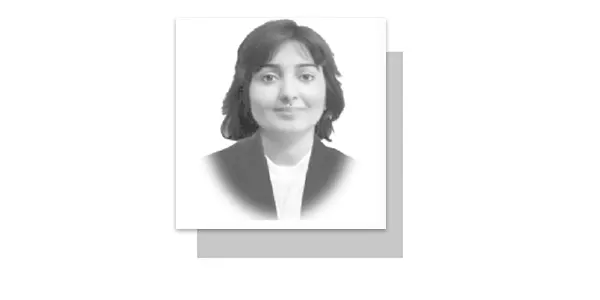PAKISTAN’S pledge to uphold religious freedom for minorities has soured into a tale of escalating persecution. Accusations of blasphemy, targeted killings, mob violence and desecration of sacred places haunt the narrative. This unravelling of Pakistan’s founding principles leaves its religious minorities trapped in a relentless siege. Article 20 of the Constitution of Pakistan ostensibly assures religious freedom, barring discrimination and ensuring the right to practice and receiving religious education. As an Islamic State, it upholds humane principles of Islamic laws. Yet, violence against religious minorities persists, often under the guise of blasphemy laws. This stark contrast between theory and reality underscores the imperative for reconciling lofty ideals with the harshness of everyday life.
In a harrowing incident in Sargodha, a Christian man fell victim to a frenzied mob, purportedly for desecrating the Quran, succumbing to his injuries nine days later. Additionally, the mob wreaked havoc on the homes and businesses of the Christian community, leaving behind a wake of destruction and dread. Sadly, such barbaric assaults on religious minorities are not anomalies but stark reminders of the entrenched intolerance and brutality infesting our society.
In 2009, Gojra, a town in Punjab, bore witness to a nightmarish rampage as a mob, incited by rumors of Quran desecration, razed Christian homes and churches. Four years hence, Joseph Colony in Lahore faced a similar ordeal, triggered by a blasphemy accusation against a Christian, resulting in widespread devastation and displacement. Then, in 2017, the Bethel Memorial Methodist Church in Quetta became the target of a suicide bomber claimed by a Taliban faction. These alarming incidents form a grim litany of violence and coercion, underlining the urgent need for concerted action to protect the rights and lives of the vulnerable.
A year ago, Jaranwala, Faisalabad, was immersed in horrific communal violence. A mob, chanting ‘Labbaik’, targeted five churches, numerous Christian homes and even a cemetery, leaving devastation in its wake. Allegedly sparked by the desecration of Quranic pages near the residences of two Christian brothers, this violence emphasizes the pressing need to cultivate a culture of peaceful coexistence, preventing such tragedies and fostering harmonious community life.
Similarly, in the border regions of Sindh and Punjab, religious minority groups, particularly Hindu and Christian girls, face the peril of abduction and coercion. They endure forced conversions to Islam and subsequent marriages to Muslim men against their will, a flagrant violation of their rights and dignity. The brazen impunity with which these atrocities occur underscores the immediate necessity for robust legal frameworks and law enforcement to safeguard the rights, safety and security of religious minorities.
Pakistan’s social fabric bears the scars of entrenched religious biases, nurturing a culture rife with discrimination and intolerance. The exclusion of individuals based on their religious affiliations constitutes a blatant violation of fundamental human rights and stands in blunt contradiction to the principles of fairness, inclusivity and equality. Yet, in a troubling incident in Punjab’s Attack district, a school succumbed to religious prejudice, expelling four students from the Ahmadiyya community solely on account of their faith. Such expulsion, based on religious identity, undermines the very essence of education which should champion enlightenment, acceptance and intellectual freedom. This discriminatory act starkly contradicts the values of diversity, respect and inclusivity, laying bare the deep-seated biases that threaten the very foundation of our society.
The insidious influence of religious manipulation and extremism often undermines the rule of law, prioritizing dogma over democracy and zealotry over the pursuit of justice and equality. In February 2024, throngs of Pakistanis gathered on a Friday to protest against the Chief Justice of the Supreme Court following a contentious blasphemy verdict involving a member of the Ahmadi community accused of disseminating a ‘prohibited text’. Initially overlooked, the verdict was swiftly thrust into the spotlight by social media channels linked to a political party veiled in religious rhetoric. This party’s involvement ominously shadows every instance of religious fanaticism, from the horrific burning of a Christian couple in Kasur to the ruthless assassination of Governor Salman Taseer.
That very year, a chilling episode unfolded when a woman faced threats to her life simply for wearing a dress embellished with Arabic calligraphy bearing the word ‘Halwa’, meaning ‘beautiful and sweet’. This seemingly innocuous inscription ignited fury, with certain individuals calling for her punishment for blasphemy, even advocating for her beheading. Fortunately, the swift intervention of law enforcement rescued her from the clutches of zealotry, escorting her to safety. This traumatic episode exposes not only the extreme religious sensitivities that pervade Pakistan but also the precarious vulnerability of women, who, like minority groups, are frequently marginalized, discriminated against and subjected to persecution.
I ask, should these cases be deemed blasphemous, or rather the instances where a religious mentor sexually exploits a minor in a Mosque or Madrassa surrounded by sacred texts?
It is imperative to regulate the ‘C-section Cult,’ a term I have coined to denote extremist factions in Pakistani society with violent ideologies, spawned by systematic intervention and mechanized surgery of the establishment. Also, the Islamic Ideology Council has a sacred responsibility to weave a tapestry of interfaith harmony by fostering a culture of tolerance and understanding that quells discord and violence and nurtures a peaceful coexistence.
—The writer is Lecturer in English Literature at Government College University Faisalabad.









